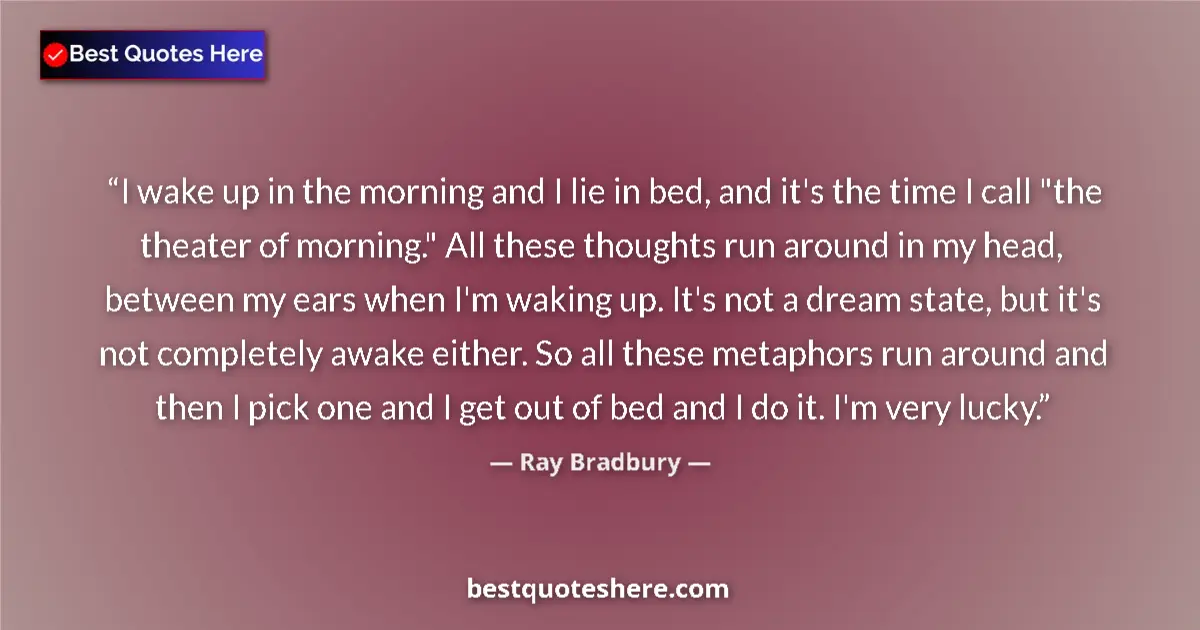"I wake up in the morning and..." - Quote by Ray Bradbury
I wake up in the morning and I lie in bed, and it's the time I call "the theater of morning." All these thoughts run around in my head, between my ears when I'm waking up. It's not a dream state, but it's not completely awake either. So all these metaphors run around and then I pick one and I get out of bed and I do it. I'm very lucky.

More by Ray Bradbury
“I've never been in charge of my stories, they've always been in charge of me. As each new one has called to me, ordering me to give it voice and form and life, I've followed the advice I've shared with other writers over the years: jump off the cliff and build your wings on the way down.”
“The best scientist is open to experience and begins with romance - the idea that anything is possible.”
“You grow ravenous. You run fevers. You know exhilarations. You can't sleep at night, because your beast-creature ideas want out and turn you in your bed. It is a grand way to live.”
More on Creativity
“Every word was once a poem.”
“It is easy to see that what is best written or done by genius in the world, was no man's work but came by wide social labor, whena thousand wrought like one, sharing the same impulse.”
“When you want to put something into your part that is not in the play, you must ask the author-or some other author-to lead up to the interpolation for you. Never forget that the effect of a line may depend not on its delivery, but on something said earlier in the play, either by somebody else or by yourself, and that if you change it, it may be necessary to change the whole first act as well.”
More on Ideas
“No, I'm not clever. I've always cared more for people than for ideas.”
“What the tender and poetic youth dreams to-day, and conjures up with inarticulate speech, is to-morrow the vociferated result of public opinion, and the day after is the character of nations.”
“I do not know but thoughts written down thus in a journal might be printed in the same form with greater advantage than if the related ones were brought together into separate essays.”